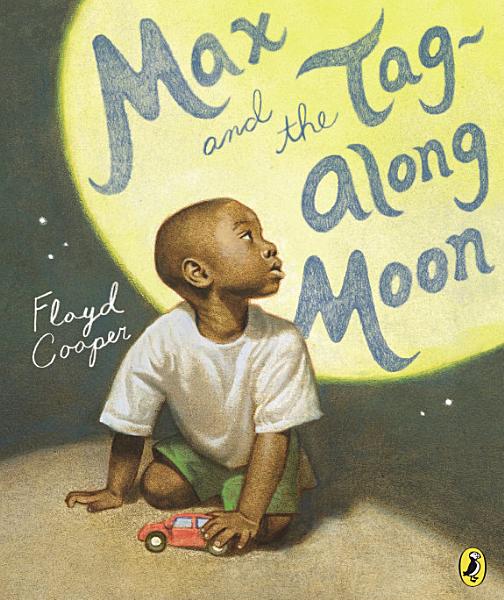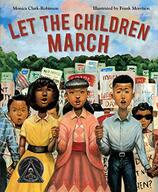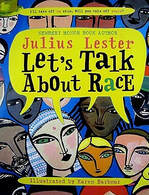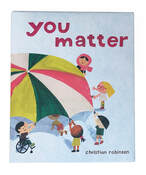I’m not talking about refrigerator organization, cookie recipes, or kids activities today. Those things are fun to talk about and easy to talk about. Today I hope you will keep reading even though I am talking about my white privilege. I posted the following to my Facebook page last weekend. And I think it is important to hold myself accountable by re-sharing and delivering on the action items presented. I am trying to start a dialogue with myself (and you) from the perspective of white privilege simply because as many have said over the last few weeks, though I will never understand how it feels to be Black, I would like to stand with Black Americans in the pursuit of anti-racism.
Uncomfortable doesn't begin to describe how I feel about difficult conversations. I like to think things through. I like to have a script. I like to have a plan for how I will respond to anything that comes my way. And for so much of my life I do have the ability to make such plans. That's my white privilege.
I've always had time, resources, and people on my side. I've been given breaks, second chances, third chances, and the benefit of the doubt. Very few things in my life have come down to a split second decision or only having a split second to defend myself. That's my white privilege.
I've comfortably sat and read many articles these last few days and I've really thought about what my role is in the movement for justice. That's my white privilege.
So this week, I hope you will join me in Just 3 Things:
1. Find an article that makes you uncomfortable to read, figure out why it brings up insecurities, and write down a resolution to address those issues. Really write it down and really resolve to improve.
2. Donate $1 or more to an organization that is actively working to help people who do not benefit from white privilege.
3. Purchase a book that addresses racial injustice, written by a person who does not benefit from white privilege for your kids and/or a kid you know.
I will share what I come up with and hope you will do the same. Accountability is what we need to show up to every day with the intent to respect every person we meet and this is where I am ready to start.
Here's What I Came Up With
1. Find an article that makes you uncomfortable to read, figure out why it brings up insecurities, and write down a resolution to address those issues. Really write it down and really resolve to improve.
I’ve buried myself in articles this week and learned so much. I do want to find a role in improving the situation — that situation being the unrelenting racism Black people endure in America. It is important to isolate that this is the issue at hand. I learned this idea from one particular article that made me uncomfortable: "Why We Need to Stop Saying ‘People of Color’ When We Mean ‘Black People’" published on Medium. The author, Joshua Adams, writes:
I’ve buried myself in articles this week and learned so much. I do want to find a role in improving the situation — that situation being the unrelenting racism Black people endure in America. It is important to isolate that this is the issue at hand. I learned this idea from one particular article that made me uncomfortable: "Why We Need to Stop Saying ‘People of Color’ When We Mean ‘Black People’" published on Medium. The author, Joshua Adams, writes:
When I taught a journalism class at DePaul University, two of my students wrote in a media critique assignment that we should use “African American” because the term “Black” has negative connotations — despite the fact I, their instructor, had referred to myself as “Black” multiple times in class. When it came to writing about police brutality, a couple of students at Salem State used “people of color” (two students actually used the term “colored people”) even though local and national discussions on police brutality almost always involve Black victims.
I can see myself posing this argument, thinking that I am being kinder or gentler in my careful use of language. The reality is that I am uncomfortable distinguishing myself from multiple marginalized groups when I know I have so much privilege just by being born White. Adams continues:
It seems like every week we see a new video of people calling the police on Black people for merely existing in public. Every few weeks, there’s another story of a police officer shooting an unarmed Black person because they “feared for their life.” Yes, other groups face systemic oppression, but while using “POC” in these contexts isn’t inaccurate, it feels misleading. A “People of Color Lives Matter” movement would be useful, but we can understand why “Black Lives Matter” has a more specific resonance.
This article was posted in 2018. Let me say that again, this article was posted in 2018.
My resolution is threefold:
What Black Lives Matter Means (and Why It's Problematic to Say "All Lives Matter"
Performative Allyship Is Deadly (Here’s What to Do Instead)
Save the Tears: White Woman's Guide
What Is Toxic White Feminism? - When Feminism Is White Supremacy
10 common phrases that are actually racist AF.
My White Friend Asked Me on Facebook to Explain White Privilege. I Decided to Be Honest
PSA: Black People Do Not Go To College For Free
Becoming a Parent in the Age of Black Lives Matter
3 Things Amy Cooper Did In Central Park to Damage Her Reputation and Career
2. Donate $1 or more to an organization that is actively working to help people who do not benefit from white privilege.
Our family donated to CAMPAIGN ZERO (WeTheProtesters Inc.). This organization provided the most eye-opening information to me about police brutality. Its resources helped me understand the rationales for police defunding and demilitarization. These are two ideas that make my ego wildly uncomfortable — My very privileged, white self, (without any history of negatively biased policing) thinks “shouldn’t we be adding funding to police administrations and making sure they have the supplies required to maintain safety.” I really need to be viewing these issues through the lens of vulnerable communities, namely, the Black community. Campaign Zero's #8CantWait project has already made impacts in major US cities and provides a model for continued decreases on deaths caused by police officers.
3. Purchase a book that addresses racial injustice, written by a person who does not benefit from white privilege for your kids and/or a kid you know.
My resolution is threefold:
- Voice my intolerance for racist comments made around me and my children. Recognize that there is no such thing as a passive or uncharged racist comment.
- Actively seek out Black-owned businesses to support.
- Introduce anti-racism to my children in as many aspects of play as possible. Focus on finding kind ways to celebrate differences in appearance and experience, specifically regarding the Black community.
What Black Lives Matter Means (and Why It's Problematic to Say "All Lives Matter"
Performative Allyship Is Deadly (Here’s What to Do Instead)
Save the Tears: White Woman's Guide
What Is Toxic White Feminism? - When Feminism Is White Supremacy
10 common phrases that are actually racist AF.
My White Friend Asked Me on Facebook to Explain White Privilege. I Decided to Be Honest
PSA: Black People Do Not Go To College For Free
Becoming a Parent in the Age of Black Lives Matter
3 Things Amy Cooper Did In Central Park to Damage Her Reputation and Career
2. Donate $1 or more to an organization that is actively working to help people who do not benefit from white privilege.
Our family donated to CAMPAIGN ZERO (WeTheProtesters Inc.). This organization provided the most eye-opening information to me about police brutality. Its resources helped me understand the rationales for police defunding and demilitarization. These are two ideas that make my ego wildly uncomfortable — My very privileged, white self, (without any history of negatively biased policing) thinks “shouldn’t we be adding funding to police administrations and making sure they have the supplies required to maintain safety.” I really need to be viewing these issues through the lens of vulnerable communities, namely, the Black community. Campaign Zero's #8CantWait project has already made impacts in major US cities and provides a model for continued decreases on deaths caused by police officers.
3. Purchase a book that addresses racial injustice, written by a person who does not benefit from white privilege for your kids and/or a kid you know.
We reviewed Luke’s library and recognized a definite need for diversity, so we started with Max and the Tag-Along Moon by Floyd Cooper. It’s certainly not a book regarding racial injustice, but Luke has requested it nightly. We look forward to ordering other Floyd Cooper titles from our local bookshop. There are several books that are coming back into print to meet demand, which shows that people are looking to educate themselves and support Black writers. We are awaiting copies of Let the Children March by Monica Clark-Robinson and Let’s Talk About Race by Julius Lester.
I urge you to take these Just 3 Things action items to heart and share your resolutions publicly. I also encourage you to set monthly reminders in your calendar to revisit your resolutions and make sure you are actively acknowledging your privilege and continuing to take anti-racist actions in your everyday life.
There is so much more work for me to do in coming to terms with my non-understanding of the issue at hand. These are some of the resources I have been engaging or plan to explore:
I urge you to take these Just 3 Things action items to heart and share your resolutions publicly. I also encourage you to set monthly reminders in your calendar to revisit your resolutions and make sure you are actively acknowledging your privilege and continuing to take anti-racist actions in your everyday life.
There is so much more work for me to do in coming to terms with my non-understanding of the issue at hand. These are some of the resources I have been engaging or plan to explore:
Black-Owned Businesses to Support
25 Black-Owned Brands for Babies, Kids, and Parents
125 Black-Owned Businesses to Support Right Now
Post 21 Shop
125 Black-Owned Businesses to Support Right Now
Post 21 Shop
Resources (parent-focused):
So you want to talk about race by Ijeoma Oluo
Raising White Kids, Bringing Up Children in a Racially Unjust America by Jennifer Harvey
CNN Sesame Street Race Town Hall
Haliet Thomas’ “What to Say When You Don’t Know What to Say”
theconciouskid
The Conscious Kid (Patreon paid resources)
Black Baby Books
Raising White Kids, Bringing Up Children in a Racially Unjust America by Jennifer Harvey
CNN Sesame Street Race Town Hall
Haliet Thomas’ “What to Say When You Don’t Know What to Say”
theconciouskid
The Conscious Kid (Patreon paid resources)
Black Baby Books














